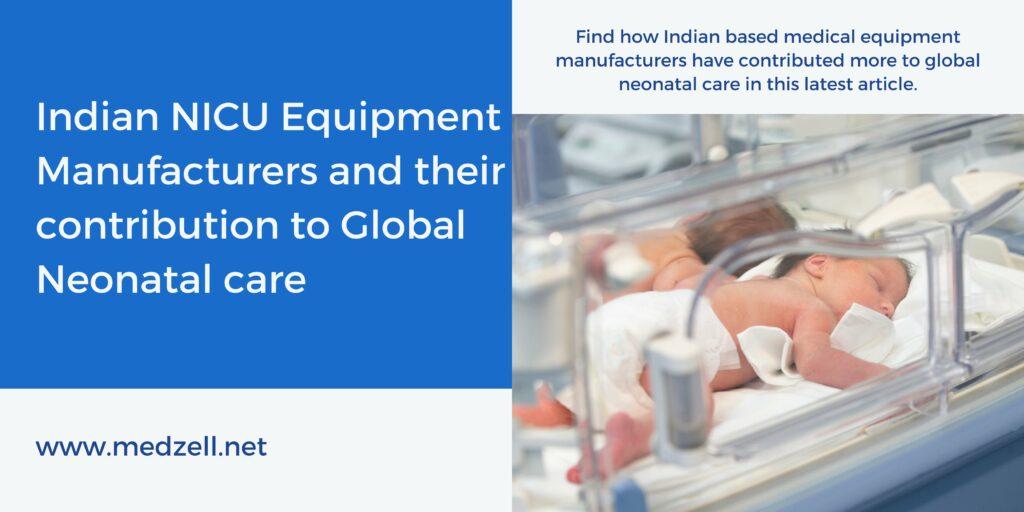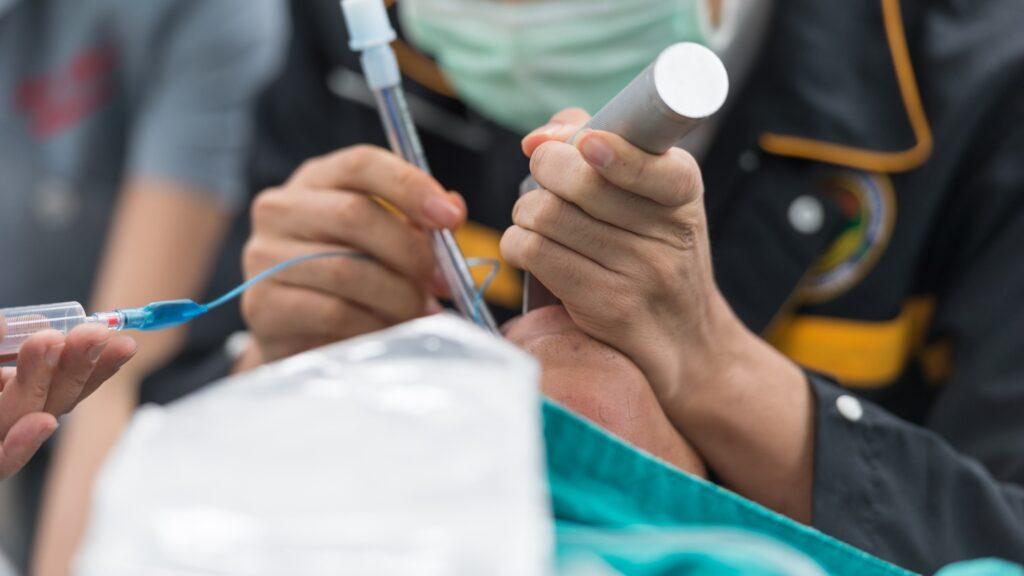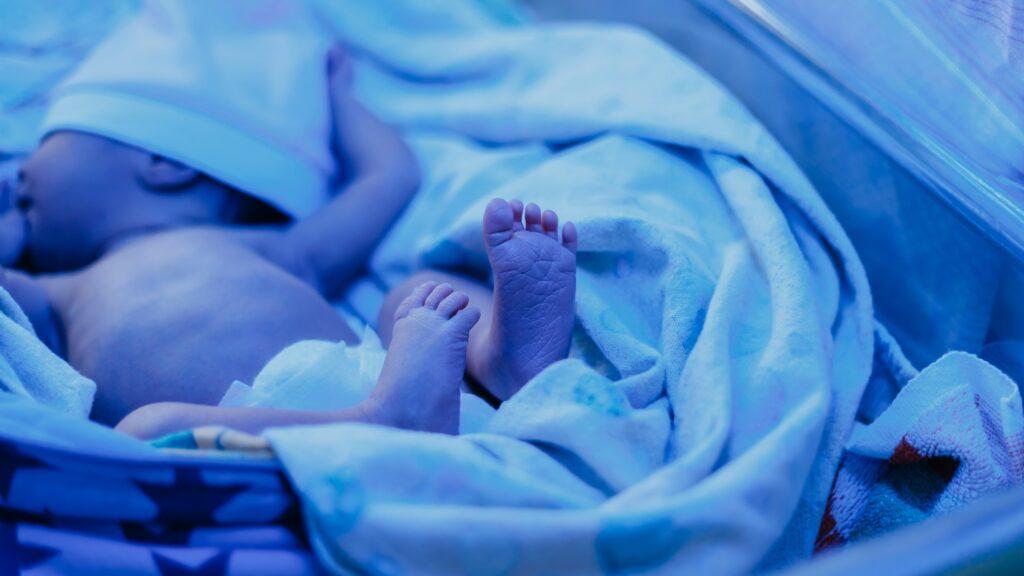Neonatology and the levels of NICU care
Newborn babies whose age is less than four weeks are called neonates. Neonatology, a subspecialty of pediatrics, is concerned with the medical care of neonates. The first month of a baby is a crucial period where there exists a high risk of contracting infections or having congenital defects. A neonate’s lungs and immune system are incompletely developed and require extra protection from infections.
Neonatal Intensive Care Units (NICUs) provide healthcare to neonates, specifically those who suffer from illness, birth defects, premature birth, birth asphyxia, low weight, and those who require hospitalization. The NICU is not limited to the care of premature babies. There are four levels of NICU care in India based on the neonate’s weight and gestational age:
-
Level I care: Provides care to neonates over 1800 grams or 34 weeks of gestational maturity
-
Level II care: Provides care to neonates in the weight range of 1200-1800 grams or 30–34 weeks of gestational maturity
-
Level III care: Provides care to neonates who weigh less than 1200 grams or have gestational maturity lower than 30 weeks
-
Level IV care: Assures the highest level of care to babies regardless of their gestational age. Level IV care include a wide range of facilities and administration of constant care by neonatologists and nurses.

Why neonatal care is a priority worldwide
Ignoring illnesses in neonates can lead to the development of disabilities and disorders, which may further degrade their quality of life as adults. According to the WHO, 2.4 million newborns died in 2020 worldwide. Neonatal deaths are estimated to reach a number of 28 million between 2020 and 2030. Nearly a third of neonatal deaths occur within the first 24 hours after birth, and around three-quarters happen within a week following birth. The death of newborns has a profound impact on their mothers and their families.
Neonatal mortality rates (NMRs) vary across countries. In South Asia and Sub-Saharan Africa (SSA), 70 percent of newborn deaths were due to birth asphyxia and sepsis. The third reason for the death of newborns may be attributed to preterm birth complications. At 27 deaths per 100 live births, Sub-Saharan Africa has the highest mortality rate globally. South Asia also has a high mortality rate of 24 deaths per 1000 live births.
In the countries of SSA, there is a significant increase in mortality risk associated with neonatal hypothermia. Neonates are likely to contract hypothermia due to low weight, prematurity, delayed skin-to-skin contact with the mother, and lack of medical devices. Moreover, there is a dearth of skilled healthcare providers who possess knowledge of hypothermia treatment and prevention.
Although neonatal mortality has decreased worldwide, the rate of decline is slow when compared to the mortality rate among young children between the ages of 1-11 months and 1-4 years. Neonatal mortality is high in developing countries.
In Low and Middle-Income Countries (LMIC), a considerable number of women deliver their babies at home. Globally, 34 percent of births take place without adequate assistance. The death of newborns at home can be prevented to a great extent if skilled care is administered.
Each year, 15 million babies are born premature, with a visible increase in this number. The provision of medical care during the postnatal period and childbirth will ensure the survival of the majority of such babies and avoid unnecessary suffering for families.
Global Trends in the neonatal equipment market
Globally, the neonatal equipment market is estimated to reach US$ 3,103.81 million by 2028 in comparison to US$ 1,934.24 million in 2021. A CAGR of 7.0% is expected to register from 2022 to 2028. The neonatal and prenatal devices market in India is likely to witness a year-on-year growth of 4.01% in 2022 and a CAGR of 5.21% from 2022-2028.
In the Asia Pacific region, the rising number of preterm births has boosted the need for incubators. The NICU equipment market in China is expected to prosper due to improvements in technology. Rural areas which lack adequate health facilities utilize devices to monitor the vital signs of newborns and infants.
In Africa, there is a need for improvements in neonatal care, especially in areas that enable serious illnesses to be detected, which may, in turn, help to reduce NMRs. There is inadequacy in the development of equipment to cater to the needs of newborns at risk. Another obstacle is that there are low resources for conducting tests and clinical trials. Certain devices used for continuous monitoring of newborns are costly and necessitate adequate training for operation. The initiative should be taken by manufacturers to develop non-invasive devices that can survive in rough environments and are user-friendly, economical, and efficient.
Europe has witnessed a rise in the production of NICU equipment due to better technology, greater frequency of preterm births, and difficulties in pregnancy that arise as the consequence of a sedentary lifestyle. The need for pulse oximeters, NICU monitoring systems, adhesive skin electrodes, and adhesive thermistors is estimated to increase in the near future. Leading manufacturers in Europe invest in product development and research to stay ahead of the competition.
The NICU devices market in UAE has grown owing to technological innovations, the prevalence of preterm births, and the demand for monitoring devices. Manufacturers aim to introduce new equipment which provides numerous benefits to users. Neonatal incubators, which regulate the temperature of infants, are expected to grow in demand. Major companies in UAE strive to elaborate their portfolio of equipment to be on par with their competition.
The United States of America has hospitals that are equipped with modern healthcare facilities. Increased awareness, accessibility, and application of ultrasound equipment have led to a boost in sales. There is an evident advancement in the neonatal market in the USA following technological innovations and lifestyle-induced complications during pregnancy.
Evolution of neonatal equipment manufacturers in India
Before the 1990s, Indian companies had formed partnerships with foreign manufacturers, which enabled the former to use the latter’s expertise to create products for the people of India. Until the early 1990s, the Indian government as well as entrepreneurs paid no attention to the production of medical equipment, although problems such as infant mortality existed.
In 1980, The National Neonatology Forum (NNF) was formulated by a few pediatricians. The NNF promoted the importance of newborn care and recognized it as a national health priority. At the beginning of the 1990s, globalization efforts had begun in India. In the 2000s, import restrictions were reduced, which facilitated the import and selling of foreign products in India. All India Institute of Medical Sciences (AIIMS) hosted a conference on biomedical equipment in neonatology. This event inspired manufacturers to collaborate with doctors to find solutions to difficulties faced by newborn babies and children.
Products such as phototherapy units, incubators, and resuscitation bags were developed as a result. They were used in hospitals across India as they were economical and of remarkable quality. Moreover, the equipment rose in acceptance in countries outside India. The rise in demand enabled the growth of medical equipment manufacturers in India. Maintenance of quality was imperative to thrive in the market.
The global scope of Indian NICU equipment and research
The neonatal equipment market in India is growing due to the high number of preterm births, incidents of neonatal jaundice, and the use of equipment in NICUs. The neonatal sector did not suffer due to the pandemic and instead flourished despite all limitations. Private companies and start-ups are making their presence felt in the neonatal care sector with the development of innovative equipment and technology. Neonatal medical devices manufactured in India are even imported from developed countries.

Indian manufacturers have developed NICU equipment with innovative features such as examination lamps with no-touch switches and beds for infants which can enable rotation. It is noteworthy that manufacturers from other countries include such features in their equipment. As far as infant warmers and phototherapy units are concerned, the country is nearly self-sufficient. Moreover, hospitals in India utilize resuscitation equipment and weighing scales manufactured domestically. Presently, India can be considered a potential international hub for cost-effective neonatal equipment of superior quality. Indian neonatal equipment is being constantly imported into Asia, Africa, the Middle East, Europe, CIS Nations, North America, and South America. Affordable costs, a diverse range of features, and the authenticity of brands have enabled and increased the exports of Indian-made NICU equipment & consumables to several underdeveloped and developing countries including Madagascar, Chad, Nigeria, Rwanda, Tunisia, Senegal, DRC, and Nepal among others. A few of the top manufacturers and suppliers of neonatal medical devices can be found in Medzell.
Indian neonatal equipment manufacturers in Medzell
Medzell, an international B2B platform was developed in April 2022 to enable Indian medical device manufacturers to connect with buyers worldwide. To register your company, do sign up here. Several manufacturers are registered with Medzell, among whom those listed below engage in the export of neonatal equipment & consumables:
VNG Medical Innovation System specializes in the manufacture of neonatal medical equipment. For more than 20 years, they have fulfilled their mission to provide supreme care and comfort to newborns. Currently, their products are in demand in India as well as other countries. Their products developed for newborns and infants include Infant Radiant Warmers, Phototherapy Eye Masks, Infant Incubators, etc. are available in Medzell to enable buyers to find and do business with them.
Neokraft Medical Private Limited is located in Bangalore, India. For the past 15 years, this ISO-certified company has specialized in the production of neonatal equipment. In Medzell, buyers can view their products including Bassinets, Oxygen Hoods, Bubble CPAP, Eye Pads and Protectors, Infant Incubators, Infant Radiant Warmers, LED Phototherapy Units for Newborns, Suction Machines, Trolleys, and Weighing Scales. Their goal is to assist healthcare providers by supplying them with cost-effective equipment that meets international standards.
Hindustan Meditech, an ISO-certified company based in Surat, is a trader, manufacturer, and exporter of NICU equipment including warmers and phototherapy machines, etc. They supply medical equipment to customers based on their requirements. Medzell displays Hindustan Meditech’s Infant Radiant Warmers and LED Phototherapy Machines that are related to NICU care.
BPL Medical Technologies Private Limited is an Indian multinational company that has been spearheading innovative medical efforts and medical technology ever since 1967. Their aim is to make innovative patient care products and systems of high quality. They are a well-known brand that produces various medical devices such as Patient Monitors, X-ray Machines, Medical Ventilators, Fetal Monitors, Fetal Dopplers, ECG Machines, Defibrillators, Infusion Pumps, C-arms, Holter Monitors, and more. You can find Baby Weighing Machines, Neonatal Patient Monitors, HFO Ventilators, and more manufactured by BPL Medical Technologies in Medzell.
Doctroid India Pvt. Ltd. is an ISO-certified Surat-based company that was established in 2017. They engage in the manufacture and supply of NICU products, tourniquet systems, vein finders, pulse oximeters, and other medical equipment. The following products can be viewed by buyers on Medzell: Eyepads and Protectors, Infant Radiant Warmers, LED Phototherapy Units for Newborns, and Oxygen Hoods.
InnAccel Technologies Pvt. Ltd., a company that meets ISO standards, was founded in 2012. The company manufactures products that focus on two main areas – mother, child care, and critical care. At Medzell, you can find their CPAP Machines.
AVI Healthcare Pvt. Ltd., which was founded in 2009, focuses on the production and supply of high-quality neonatal equipment. The company has implemented ISO and international quality standards. Medzell enables potential buyers to view AVI Healthcare’s products and you can find them here: Apnea Monitors, Bassinets, Bilirubinometers, Bubble CPAPs, Eye Pads and Protectors, Infant Incubators, Infant Radiant Warmers, Infantometers, Irradiance Meters, LED Phototherapy Units for Newborns, Medical Ventilators, Pulse Oximeters, Resuscitators, and Weighing Scales.
Zeal Medical Pvt. Ltd., is one of the leading manufacturers of NICU equipment and has established itself as a global supplier of cost-effective medical devices in the field of neonatology, resuscitation, thermal care, hyperbilirubinemia management, and other healthcare segments. They are an ISO-13485-certified company with strong QA and R&D sections. Some of Zeal’s product categories that can be found in Medzell are Infant Incubators, Bassinets, Infant Radiant Warmers, LED Phototherapy Units, and a few more.
Ibis Medical Equipment & Systems Pvt. Ltd. has been involved in the production of NICU equipment of superior quality since 2008. This ISO-certified company which meets international standards ensures product quality at each step of production. Their mission is to supply user-friendly neonatal equipment that is superior in terms of technology, provides excellent value for money, and surpasses customer expectations. Medzell showcases the following Ibis Medical products for newborns and infants: Eye Pads and Protectors, Gonad Protectors/Shields, Infant Radiant Warmers, Infantometers, LED Phototherapy Units for Newborns, Measuring Tapes, and MUAC tapes. Their products are exported to the Middle East, CIS nations, Europe, Africa, and Asia.
Conclusion
The main challenge in improving neonatal care in low-income countries is the high healthcare cost, which may discourage underprivileged families from using NICU services and equipment. If NMRs need to be reduced, we should employ more qualified healthcare professionals and make the delivery of the service more efficient and affordable. With the contribution of Indian manufacturers who are involved in the production of cost-effective NICU equipment, we are now moving closer to providing better neonatal care and reducing NMRs. We hope to see more innovations, contributions, and developments that could enhance neonatal care not just in developing and developed countries but also in underdeveloped nations.
References
-
https://www.thenest.in/understanding-neonatal-intensive-care-unit-nicu/
-
https://nijp.org/challenges-and-opportunities-of-neonatal-care-in-india/
-
https://www.unicef.org/india/what-we-do/newborn-and-child-health
-
https://www.biospectrumindia.com/views/59/21718/saving-newborns-on-priority-.html
-
https://www.who.int/news-room/fact-sheets/detail/levels-and-trends-in-child-mortality-report-2021











